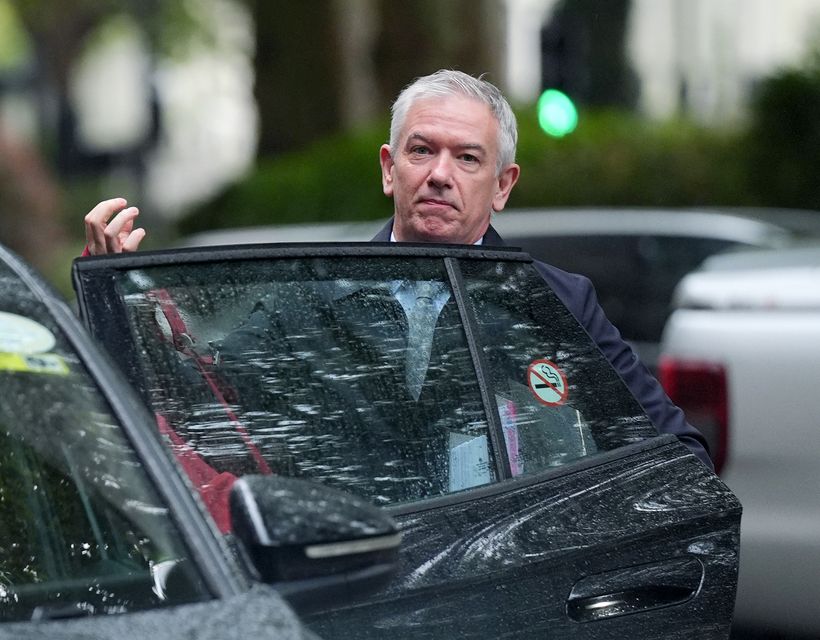Scotland’s chief medical officer has told an inquiry that people asked to shield during the Covid-19 pandemic should have had more support to help reduce their “isolation and fear”.
Professor Sir Gregor Smith told the UK Covid-19 Inquiry that shielding was “a really horrible undertaking”, but it had been “one rational way” to keep people at additional risk safe during the pandemic.
The inquiry is currently examining the impact of the pandemic on the health and social care system in Scotland as well as the NHS across Britain.
Sir Gregor told the inquiry on Wednesday that if the country was ever put in the position of having to ask people considered vulnerable to illness to isolate themselves again, more mental health and other support should be made available.
He told the inquiry: “I don’t think that any of us who were not in that shielding group completely understand what the sense of isolation and fear must have felt like.
“In people that I’ve spoken to, that’s the bit that comes across more than anything else.”
He added: “I think it was always questioned as to as to whether it was absolutely the right thing to do. But even with the benefit of hindsight, given the information that was available at that point in time, it did seem like one rational way of trying to protect people who were recognised as being at additional risk.
“The one bit I would change was to ensure that there was a greater degree of mental health support for people who were undertaking shielding, and whether additional supports could be made available just to reduce that sense of isolation that people felt.”
Professor Sir Gregor Smith gave evidence to the UK Covid-19 Inquiry on Wednesday (Yui Mok/PA)
The chief medical officer also told the inquiry about the “incredible” volume of work needing to be done to keep the Government up to date with the latest developments on the disease.
He said this required him to increase the number of deputy chief medical officers from one to three during the summer of 2020.
He also described how his team worked up to 16 hours a day, seven days a week, in their response to the Covid pandemic.
“The volume of work was quite incredible at that point in time,” he said.
We need your consent to load this Social Media content. We use a number of different Social Media outlets to manage extra content that can set cookies on your device and collect data about your activity.
“One of the first steps that I took was to enhance that senior clinical team, but also to make sure we were making far better use of the other senior clinicians who worked within government as well such as the chief nursing officer.
“It was very evident that if we were going to service the volume of demands that we had from different parts of Government, we had to make sure there was adequate clinical capacity.”
Discussing the impact of the increased workload on his team, Sir Gregor admitted the regular requirement to work long hours took its toll.
“I don’t think my team was alone in working those types of hours,” he said. “I saw similar levels of commitment of government and the healthcare.
“It was a quite remarkable effort, but it did have an impact on us all. We were tired and it was stressful work, there is no getting away from that.
“There was very little respite from it. Working those excessive hours certainly has its toll, particularly as leave was just not an option.
“I can’t remember the first time I actually took leave as part of the response.
“It was tough, and it was tough not just for us, but for our loved ones and our friends as well.”
He added that the pandemic had been a “harrowing” experience for many healthcare staff, and that more support should have been provided to them to help them cope.
“I think in retrospect we were too slow to provide support for those staff,” he said.
“And that’s something which we could have looked at in a much earlier stage, particularly psychological support, safe space for them to debrief, in particular after what was quite harrowing experiences for many of them.
“That’s something which I would like to have seen improve.”
Sir Gregor also told the inquiry how it was often a case of having to make choices that would lead to less worse public health outcomes than others.
He gave the example of the cancellation of regular cancer screening, saying: “The most obvious example that I would give would be the decision to pause screening.
“I think that was taken in March 2020 by my predecessor, which was an incredibly difficult decision.
“But it was taken for reasons to try to free up staff and resources to be able to respond to the direct Covid harm.
“It certainly wasn’t an easy choice, but I think it was the right choice at that time.
“But no-one was unaware that it wasn’t without risk.”
The inquiry, before Lady Heather Hallett, continues.
